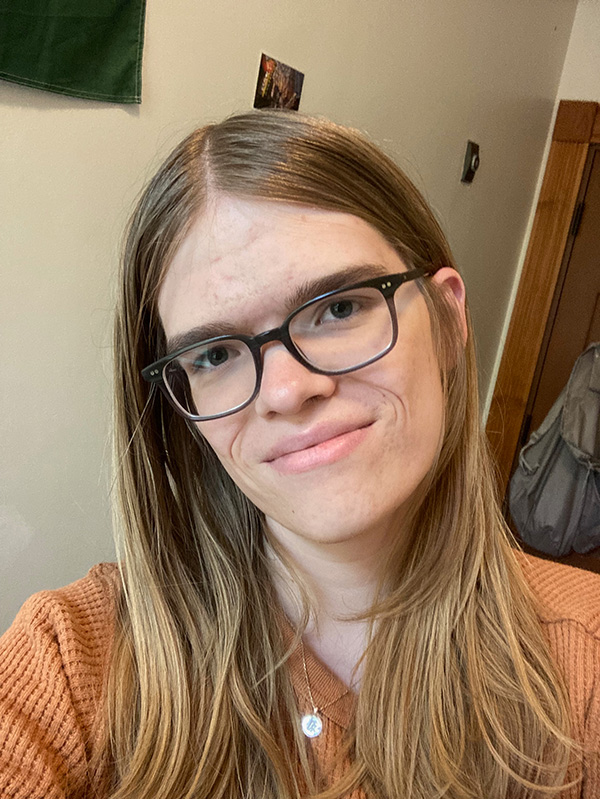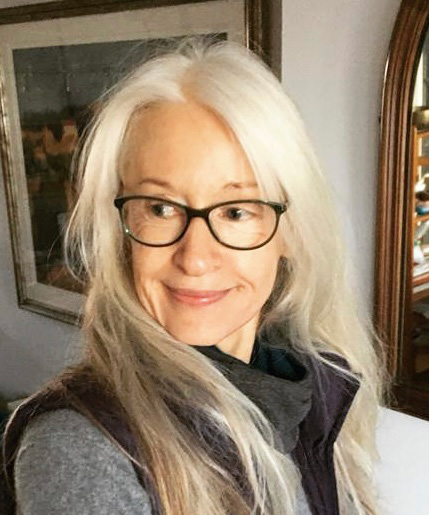Alyssa’s Bio:
Alyssa Willeford is a new writer based in New York City - so yes, ladies like her are a dime a dozen. She mainly works in the fields of fantasy and speculative fiction and would pay any amount of money to see a dinosaur in real life. Though she does write horror, she is such a wimp that she can’t even make it through the anglerfish scene in Finding Nemo.
When Alyssa isn’t writing, she’s at her soul-sucking day job or else engaging in New York City antics with her friends, who are all very bad influences. She enjoys reading, especially classics, and cooking, especially spicy food. She speaks Spanish and Japanese, although she cannot produce a sentence in any language when she’s chowing down on a bowl of three-bean chili.
You can find her writing in Dark Horse magazine and adapted to audio in Dark Nights and Spooky Tales podcast. She’s also on Bluesky and Threads - her handle on both outlets is akwwrites.
Read More »
If you haven't done so already, check out Alyssa's award-winning story "The Assessment" and then return here for a chat with the author.
WOW: Congratulations on placing third in the Summer 2024 Flash Fiction Contest! What excited you most about writing this story?
Alyssa: I had the idea for this story when reading about the Turing test, a hypothetical test that determines whether one's conversational partner is a human or an algorithm. Most generative AI these days does very well at Turing tests, but it isn't perfect. I booted up ChatGPT to find a single question that could stump an AI, and to its credit, I had a lot of trouble! But I did find that double entendres could sometimes stump it, as in my story - "poaching" refers to both illegal hunting and a method of cooking. That exact question tripped ChatGPT up, because when it saw the word "elephant," it assumed I was referring exclusively to the second meaning. It's only the absurd human mind that can conceive of the idea of boiling an elephant in flavored liquid until tender, and I love that.
WOW: What an interesting experiment with AI and ChatGPT! It really makes you think about how we connect pieces of information, which can be helpful in the writing and creative processes. What did you learn about yourself or your writing while crafting this piece?
Alyssa: I come to writing from a background in comedy, and I think this piece really benefited from that. It's very much set up like a joke. But unlike a cheap pun, it also has something larger to say about the human condition, and in this case about the advance of AI. I think bringing my comedic instincts to serious stories is something I'll try again in future.
WOW: Yes, I agree that the combination of serious stories spiced with humor is powerful. You mention in your bio that you’re a new writer. What prompted you to start writing?
Alyssa: I say "new writer," but actually I'm only a "new" writer in the sense that I'm just starting to submit work now. I've actually been writing since elementary school, when I would sit in a little armchair in my room and fill page after page of lined paper with fantastical, kooky stories of dubious literary merit. I've always had to write; it's something I live and breathe. I think that baby me would be very happy to know that I would actually achieve something with my writing in the future.
WOW: Congratulations on taking the steps to submit your work! And thank you for taking that chance to share it with us. We are grateful. What are you reading right now, and why did you choose to read it?
Alyssa: I'm reading a collection of Edgar Allen Poe's short stories. I'm trying to brush up on the classics, and I've enjoyed writing horror and creepy stories in the past. I have to say, though, the quality of his work is pretty uneven, and it's a little samey; I've never read about so many beautiful but tragically-deceased young cousins in my life.
WOW: It’s funny what patterns you can notice when you read a collection of a writer’s work. If you could give your younger self one piece of writing advice, what would it be and why?
Alyssa: "Writing advice" is a racket! No tip or trick or hack or cheat will work the same for you as it did for someone else. That isn't to say that you don't have a lot to learn, of course, but the best way to learn from another author is just to read their work. Nobody even fully understands how their own creative process works, so I'd be pretty suspicious of anyone who says they can help you with yours.
WOW: Learning to write by reading is very sage advice. Anything else you’d like to add?
Alyssa: Follow me on Bluesky: akwwrites.bsky.social! And support your local trans authors.
WOW: Thank you for sharing your story and your thoughtful responses with us. Happy writing!
Interviewed by Anne Greenawalt, founder and editor-in-chief of Sport Stories Press, which publishes sports books by, for, and about sportswomen and amateur athletes. Connect on Twitter @greenmachine459.



.jpg)












.jpg)





